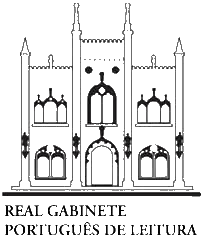“Senhor Ulme, encontrarei o seu caroço e dar-lhe-ei um motivo para ser cuspido”: a reading of the memory in Flores, by Afonso Cruz
DOI:
https://doi.org/10.37508/rcl.2024.n52a1304Keywords:
Memory., Flores., Afonso Cruz., Newest Portuguese Literature.Abstract
Memory is a phenomenon that involves the evocation of lived experiences from the past that are manifested through the remembrances. Since this process is part of the human being, there is a human attempt in understanding all of the complexity in the memory process. Having these ideas as support, our goal here is to analyze the manifestations of the memory in the novel Flores (2016)to expose in what way the characters relate with this process. In the methodological view, the article is qualitative of bibliographical nature. Published in 2015, Flores is part of a trend in the Newest Portuguese Literature to talk about universal themes. The Flores (2016) analysis demonstrated explicitly how, in the loss of individual memory, it is on the collectivity that mankind feeds their need of knowing their own past. Beyond that, the rescue of the past, as happened with Mr. Ulme, occurred above all in a search of a lost, fragmented and unknown identity. The analysis of Kevin proves how memories can act in the identity that is perceived on the man since a lot of his current actions are echoes of the teachings of his father. It can be affirmed that Afonso Cruz created a narrative that is situated in the trinity of individual memory, collective memory and identity. The theoretical support for this study will be the readings of theorists like Paul Ricoeur (2007), Michael Pollak (1992) e Maurice Halbwachs (1990), Yi-Fu Tuan (2013), Joël Candau (2011), Gabriela Silva (2016) and Miguel Real (2012).
Downloads
References
CANDAU, Joël. Memória e identidade. São Paulo: Contexto, 2011.
COSTA, Maria Helena Braga Vaz da. Espaço, identidade e memória: o lugar em era uma vez eu, Verônica. Espaço e Cultura, Rio de Janeiro, n. 39, p. 103-116, jan.-jun. 2016. Disponível em: https://www.e-publicacoes.uerj.br/espacoecultura/article/view/31757. Acesso em: 24 dez. 2023. DOI: https://doi.org/10.12957/espacoecultura.2016.31757
CRUZ, Afonso. Flores. 2. ed. São Paulo: Companhia das Letras, 2016.
HALBWACHS, Maurice. A memória coletiva. Tradução de Laurent Léon Schaffter. São Paulo: Vértice, 1990.
HALL, Stuart. A identidade cultural na pós-modernidade. Tradução de Tomaz Tadeu da Silva e Guacira Lopes Louro. 11. ed. Rio de Janeiro: DP&A, 2006.
POLLAK, Michael. Memória e identidade social. Estudos Históricos, Rio de Janeiro, vol. 5, n. 10, p. 200-212, jul. 1992.
REAL, Miguel. O romance português contemporâneo (1950- 2010). Lisboa: Caminho, 2012.
RICOEUR, Paul. A memória, a história, o esquecimento. Tradução de Alain François et al. Campinas: Unicamp, 2007.
SILVA, Gabriela. A novíssima literatura portuguesa: novas identidades de escrita. Revista Desassossego, v. 8, n. 16, p. 6-21, 2016. Disponível em: https://www.revistas.usp.br/desassossego/article/view/122430. Acesso em: 18 dez. 2023. DOI: https://doi.org/10.11606/issn.2175-3180.v8i16p6-21
TUAN, Yi-Fu. Espaço, tempo, lugar: um arcabouço humanista. Geograficidade, v. 1, n. 1, p. 4-15, 2011. DOI: https://doi.org/10.22409/geograficidade2011.11.a12804
TUAN, Yi-Fu. Espaço e lugar: a perspectiva da experiência. Tradução de Lívia de Oliveira. Londrina: Eduel, 2013.
VALENTIM, Jorge Vicente; SILVA, Gabriela. Ler o século XXI: a novíssima ficção portuguesa/. Revista do Centro de Estudos Portugueses, Belo Horizonte, v. 41, n. 65, p. 9-14, jan.-jun. 2021. Disponível em: http://www.periodicos.letras.ufmg.br/index.php/cesp/article/view/18599/1125614307. Acesso em: 21 dez. 2023. DOI: https://doi.org/10.17851/2359-0076.41.65.9-14
Downloads
Published
How to Cite
Issue
Section
License
Authors who publish in Convergência Lusíada agree with the following terms:
- Authors retain copyright and grant the journal right of first publication with the work simultaneously licensed under a Creative Commons Attribution-NonCommercial 4.0 International License (CC-BY-NC 4.0) that allows others to share the work with an acknowledgment of the work's authorship and initial publication in this journal.
- Authors may enter into separate, additional contractual arrangements for the non-exclusive distribution of the journal’s published version of the work (e.g., post it to an institutional repository or publish it in a book), with an acknowledgment of its initial publication in this journal.
- Authors are permitted and encouraged to post their work online (e.g., in institutional repositories or on their website) prior to and during the submission process, as it can lead to productive exchanges, as well as earlier and greater citation of published work.

Revista Convergência Lusíada is licensed under a Creative Commons - Atribuição-NãoComercial 4.0 Internacional.









